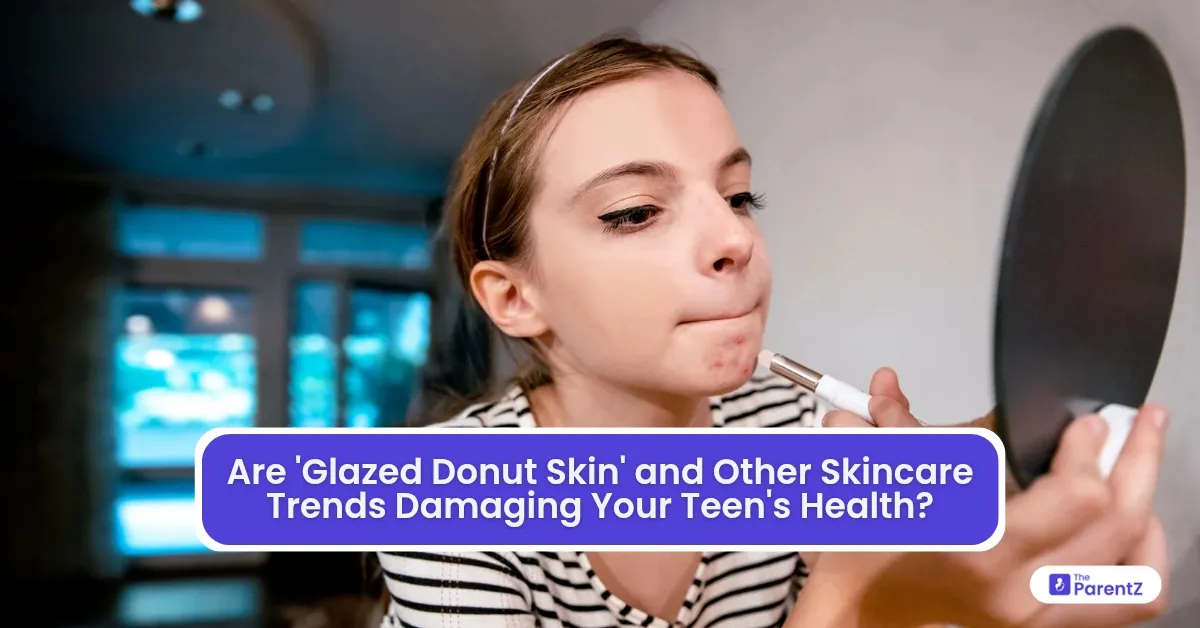If you’ve heard your teen casually throw around words like "slugging," "glass skin," or "glazed donut glow," you are not alone. TikTok, Instagram, and YouTube are flooded with skin goals that promise dewy, flawless, light-reflecting faces—sometimes at the cost of good health.
As a parent, it’s natural to want to support your teen’s self-expression. But it’s equally important to know when a harmless trend could quietly cause more harm than good.
Read below this article to find out what’s going on behind the glossy filters—and why your teen’s skincare obsession might deserve a second look.
What Is 'Glazed Donut Skin' Anyway?
Coined by model Hailey Bieber, the term "glazed donut skin" refers to achieving a face so moisturized and luminous that it literally shines—like a freshly glazed donut. Sounds innocent enough, right? Who wouldn't want hydrated, healthy skin?
The problem is, achieving that look often requires layering multiple heavy products: serums, oils, thick creams, and sometimes even petroleum jelly. While these products can offer a temporary glow, for teens—whose skin is already more prone to oiliness and acne—this can clog pores, worsen breakouts, and disrupt the skin barrier.
Why Are Skincare Trends Riskier for Teens?
Teenage skin is naturally different from adult skin. Hormones are doing their chaotic dance, leading to higher oil production, increased sensitivity, and, for many, frequent acne. Overloading the skin with rich, trendy products can throw this delicate balance into absolute chaos.
In fact, dermatologists report seeing a rise in teenage cases of "contact dermatitis" (skin irritation from products) and more severe acne flare-ups directly linked to following viral skincare routines.
The Hidden Dangers Beyond Breakouts
It’s not just pimples you should worry about. Constantly trying new trendy products can lead to:
- Skin barrier damage: Over-exfoliating and using strong actives like retinol too early can weaken the skin’s natural defense system.
- Allergic reactions: Fragrances and essential oils, often promoted as "natural," can actually irritate and inflame sensitive teenage skin.
- Psychological impact: When clear, glowing skin becomes an obsession, teens may struggle with body image issues and develop unhealthy self-esteem tied to their appearance.
Effective Tips To Help Your Teen Deal With Skincare Trends
Here are four helpful ways that actually work overcoming the craze about skincare trends among teens.
- Encourage Simplicity: Explain that healthy skin doesn’t need 10 products. A gentle cleanser, moisturizer, and sunscreen are often enough.
- Promote Education Over Trends: Teach your teen to understand ingredients rather than blindly following influencers. (A $70 serum might not be better than a $10 one!)
- Support Visits to a Dermatologist: If your teen has real skin concerns, professional advice beats TikTok every time.
- Validate Their Feelings: Instead of dismissing their skincare goals as "silly," acknowledge their desire to care for themselves while gently guiding them toward healthier choices.
Conclusion
"Glazed donut skin" might be a cute trend for a photoshoot or a night out, but when it comes to everyday teenage skincare, less is often more. Helping your teen focus on skin health rather than skin appearance sets the foundation for not just better skin—but better confidence too.





Be the first one to comment on this story.